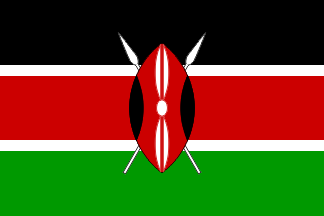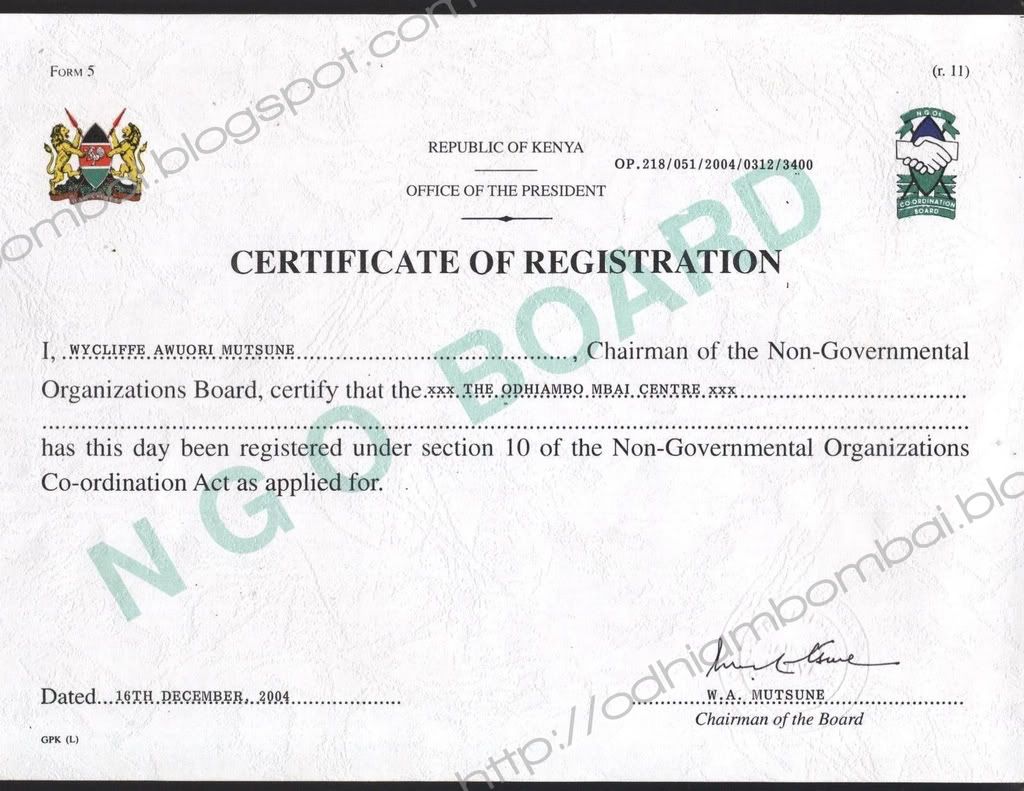
I would like to call on all old friends, well-wishers and new friends of the Centre.
In response to the humanitarian crisis that has arisen as a result of the post-election violence in Kenya. We at The Odhiambo Mbai Centre are diverting all our energies and resources towards the joint efforts in mitigating the crisis. The Centre is situated in one of the areas that was hard rocked by the violence, and due to the overwhelming needs around the country, we are afraid that significant assistance within this region may be slow due to distance.

I have been both haunted and saddened by the current events because I have only ever known Kenya as a peaceful Country. It is in times like these that the human race disappoints; but it is also in these times that our humanity is put to the test. So in that spirit, I would like to appeal to all who are in a position to assist to help us in our efforts.
Your donations will help us:-
• Feed those who are currently camped in police stations for safety after having their homes and properties burnt. They are mostly women and children. Five (5) US dollars is enough to buy flour for a family of four for a week. We hope to temporarily feed some of the current families as we look for other lasting solutions.

• Buy hospital supplies and food for the hospital. The one main hospital in the area has found itself overwhelmed with those who have been hospitalised as a result of the violence. We will also be expanding our efforts to Kisumu, which has been described as a ghost town with many casualties.
• Provide transportation to the men and women volunteers helping with body disposals to and from the morgue to curb a potential health pandemic.
The Centre will also seek to preach reconciliatory messages through volunteer counsellors as we go out in love to assist in the crisis.
You can donate to the centre by clicking on PayPal (on the right hand side of the site), or sending national or international transfers to:
or in Australia:
Account Number: 064158-10582756
Bank Name: Commonwealth Bank of Australia
Bank Branch: University of Queensland 4158
I would like to thank you in advance for your generosity. Please check this site periodically for updates of our efforts. For those of you, who are new friends of the Centre, feel free to get better acquainted with our vision and successes. We hope this will give you confidence in collaborating with us so we can avert this current humanitarian crisis.
Sincerely
Atieno Odhiambo-Mbai
Director

I have been both haunted and saddened by the current events because I have only ever known Kenya as a peaceful Country. It is in times like these that the human race disappoints; but it is also in these times that our humanity is put to the test. So in that spirit, I would like to appeal to all who are in a position to assist to help us in our efforts.
Your donations will help us:-
• Feed those who are currently camped in police stations for safety after having their homes and properties burnt. They are mostly women and children. Five (5) US dollars is enough to buy flour for a family of four for a week. We hope to temporarily feed some of the current families as we look for other lasting solutions.

• Buy hospital supplies and food for the hospital. The one main hospital in the area has found itself overwhelmed with those who have been hospitalised as a result of the violence. We will also be expanding our efforts to Kisumu, which has been described as a ghost town with many casualties.
• Provide transportation to the men and women volunteers helping with body disposals to and from the morgue to curb a potential health pandemic.
The Centre will also seek to preach reconciliatory messages through volunteer counsellors as we go out in love to assist in the crisis.
You can donate to the centre by clicking on PayPal (on the right hand side of the site), or sending national or international transfers to:
Account Name: The Odhiambo Mbai Centre
Bank Name: Cooperative Bank of Kenya
Account Number: 0110047722500
Swift Code/Sort Code : KCOOKENA
Bank Code : 11
Branch Code: 022
Branch Name: Homa Bay
Centre Address: P.O. Box 00200-57516 Nairobi Kenya
Bank Name: Cooperative Bank of Kenya
Account Number: 0110047722500
Swift Code/Sort Code : KCOOKENA
Bank Code : 11
Branch Code: 022
Branch Name: Homa Bay
Centre Address: P.O. Box 00200-57516 Nairobi Kenya
or in Australia:
Account Number: 064158-10582756
Bank Name: Commonwealth Bank of Australia
Bank Branch: University of Queensland 4158
I would like to thank you in advance for your generosity. Please check this site periodically for updates of our efforts. For those of you, who are new friends of the Centre, feel free to get better acquainted with our vision and successes. We hope this will give you confidence in collaborating with us so we can avert this current humanitarian crisis.
Sincerely
Atieno Odhiambo-Mbai
Director




